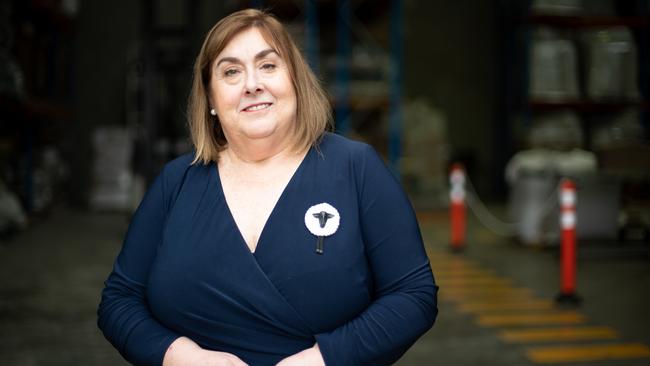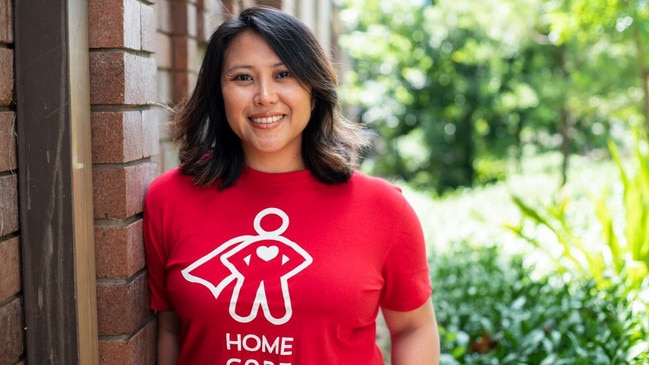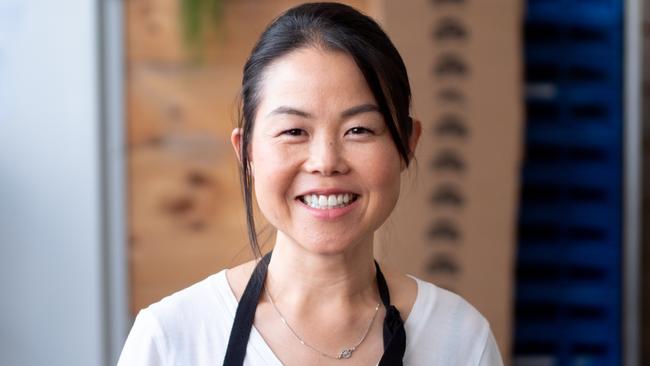Women with world-changing ideas
See why Cartier recognised these three women from Australia and New Zealand.

-
-
She may be Australian, but Joanne Howarth can regularly be found with a symbol of our neighbours across the Tasman on, or near her person — the humble sheep. She collects them, little figurines of all shapes and sizes, keeping her company in her offices both here and in New Zealand. The fascination is no mere quirk, but in fact sheep were the start point of what has grown to become a game-changing business, with an environmental goal that is formidable in its ambition: rid the world of environmentally harmful, and, up until now, highly prolific polystyrene packaging.
Howarth has been named one of the winning seven laureates of the 2020 Cartier Women’s Initiative, the French jeweller’s international business program aimed at uncovering, recognising and supporting women entrepreneurs worldwide, with a drive to effect change and find solutions for contemporary global challenges. She will receive $US100,000 ($145,000) in prizemoney and is one of the first Australian women to be nominated — and also to win — the accolade in the prize’s 14-year history. As the founder of Planet Protector Packaging, Howarth’s business uses wool waste fibres — those deemed not high-grade enough to be used in clothing and retail products — as “woolpack”, packaging for temperature-sensitive goods, like cold and hot foods, medicine and medically precious packages, including organs for transplant patients.
Like many of the nominees, her idea came when she began questioning the status quo, and then took a leap of faith believing in the power of an idea. Working for a business that used large quantities of polystyrene to transport meals, she was astounded at the sheer volume needed.
“My client’s business was clearly unsustainable. We had double tractor-trailer trucks full of polystyrene... I almost felt like I was single-handedly destroying the planet,” she says. Knowing the plastic pollutant takes 500 years to break down in the environment, and is a major contributor to microplastics found in the world’s oceans, she formulated an alternative, whereby waste wool lines cardboard boxes that have the same insulating properties as its harmful progenitor.
Like many of the other women nominees, her ultimate goal is expansive in its vision — “I’m on a mission to eliminate polystyrene from the world,” she says — and stands to benefit from the cash prize, but also the financial advice and educational support the initiative affords all 21 nominees, laureate winners or not. Already her impact has expanded beyond solely the environment, as buying wool waste has meant she has been able to provide drought-stricken wool farmers with another vital source of cash flow.

Open to women-run and women-owned businesses from any country in the world, the diverse scope of the initiative means nominees represent a rich cross-section of women tackling unique social and environmental challenges.
This year, Howarth was nominated alongside two other entrants from our region for the first time — Australian Jenna Leo, and New Zealander Lisa King, each working in very different fields, both of which they identified through personal experience.
Leo is the owner and operator of Home Care Heroes, an online agency that pairs “heroes” with people, or “members” in the community experiencing loneliness. The idea came when she watched her parents-in-law, due to illness, forced to move away from an established network of friends, face difficulty in adjusting.
“We thought there must be lots of other people who are lonely or who just want to gain more independence,” Leo says, and she was right.
As loneliness has been exacerbated by the pandemic, she has been able to pair more than 13,000 heroes with vulnerable members, to provide social interaction, and support with tasks such as grocery shopping.
King, too, turned a simple idea into a reality. Although New Zealand ranks above the average in many OECD wellbeing measures, she saw beyond the perception of her home country. A news story on television about child poverty lingered.
“I didn’t want to just sit around talking about the problem. I did something about it,” she says. “That’s one of the core values the business is built on.”

The Auckland and Wellington-based business sought to address issues of food insecurity. With nearly a third, or 27 per cent, of children in New Zealand living in poverty and no government-funded school lunch program, King saw vulnerable children suffer, going hungry at school, while trying to learn at crucial developmental stages. Based on a buy-one-give-one model, King, along with chef and husband Michael Meredith, created Eat My Lunch, where for each lunch a customer purchases, one is donated to a child in school.
At time of writing, Eat My Lunch had provided more than 1.5 million lunches, since June 2015. “We currently give to 79 schools in Auckland and Wellington and we feed about 2000 kids a day,” King says.
The results speak volumes. In a survey conducted with the schools they serve, there was a reported 87 per cent increase in concentration in classes for those children receiving food.
With Cartier’s support, she, like the other nominees, have the chance to take their ideas global — King can see her model being adopted in places such as Canada and Australia. With three nominees per region, the expansion to include nominees from Australia and New Zealand within the South Asia and Oceania region, exemplifies the true accessibility of the initiative for any woman around the world with an idea, a drive to execute it, and personal investment in changing our planet for the better.
As each finalist is supported in some way, and receives vital exposure and mentorship, the Cartier Women’s Initiative is a reminder that those deserving the spotlight, don’t always find themselves in it. While it echoes the French jeweller’s emphasis on excellence, it also recognises that it can come in different forms. Building on their own networks and reach, the initiative has become a way in which the jeweller can give a platform to women, and share their business know-how and connections with those working to create positive change — so that they can do it on a global scale.
As for what Howarth will turn her attention to now as a laureate winner, she aims to expand into other forms of environmentally friendly packaging, including compostable pouches for perishables. She’s also researching other waste products that could perform well as packaging, such as sugarcane and cotton, while still working with wool fibres.
Expect that figurine collection to keep on growing.
-
Applications are now open for the 2021 Cartier Women’s Initiative. To enter go to https://www.cartierwomensinitiative.com/regional-awards. Applications will close on July 31, 2020
-
Read The Australian’s policy on commercial content here

